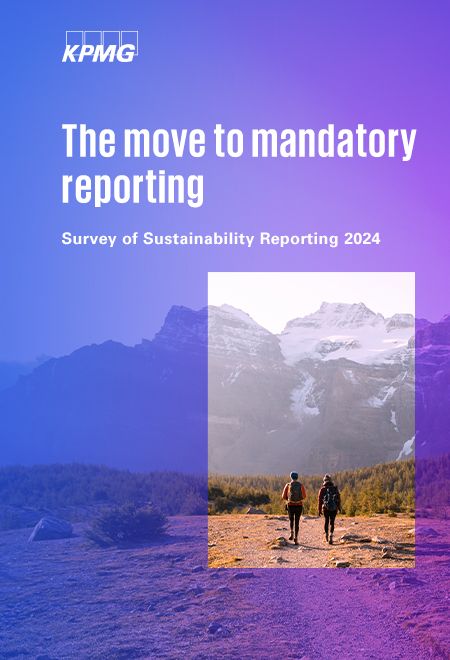Sustainability reporting is now integrated into the reporting structures of almost all of the world's largest companies. This is a key finding of the research for our comprehensive English-language study "The move to mandatory reporting". In addition, the percentage of companies that set emissions reduction targets or publish information on corporate impacts on biodiversity has increased since the previous edition of the study in 2022.
The study is based on an analysis by experts from 58 member companies in the KPMG network. The member companies analysed the annual financial reporting, integrated reporting and ESG and sustainability reporting of the 100 largest companies in their countries, territories and jurisdictions. With data from 5,800 companies, this year's study and the study from 2022 have the largest scope since the study series began in 1993.
Key findings at a glance
Sustainability reporting and emission reduction targets
- 96 of the G250 companies - the 250 companies with the highest turnover in the world in 2023 according to the Global Fortune 500 - and 79 per cent of the 100 largest national companies (N100) report on sustainability.
- 60 per cent of N100 companies worldwide have aligned their emissions reduction targets with the Paris Agreement's goal of limiting global warming to 2 degrees Celsius.
- Germany is one of the leading countries in setting emission reduction targets: In 2024, 36 per cent more companies published their targets than in the previous 2022 study.
EU Taxonomy
- Almost 50 per cent of European companies already use the EU Taxonomy as the basis for their reporting on sustainable economic activities.
- 65 per cent of German N100 companies have proactively adapted to the requirements of the EU Taxonomy in order to create transparency about their environmental performance.
Double materiality
- The double materiality analysis is a central component of CSRD compliance and is already being carried out by 50 per cent of the G250 companies in order to prepare for the upcoming requirements.
Reporting on biodiversity and risks
- Reporting on biodiversity is increasing worldwide. Around half of the G250 and N100 companies currently report on biodiversity.
- Sectors with significant environmental impacts such as mining, fossil fuels and forestry report most frequently on biodiversity, while healthcare and transport and logistics report least frequently.
Adoption of the TCFD recommendations
- Acceptance of the recommendations of the Task Force on Climate-Related Financial Disclosures (TCFD), an international working group, continues to grow. Almost three quarters of the G250 companies report on climate risks in accordance with the TCFD guidelines.






